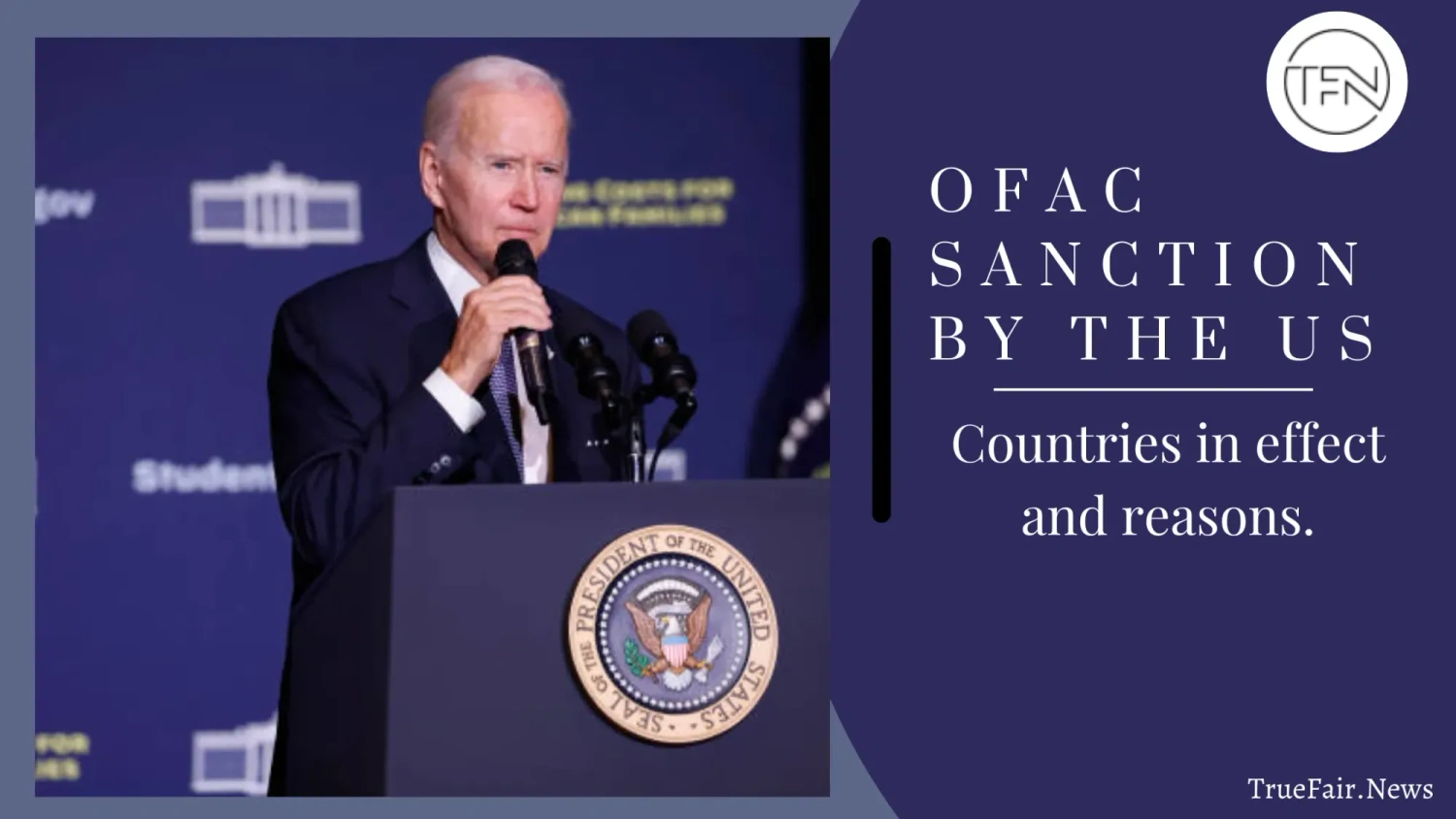
Staying in the United States’ bad book is not a good thing. The United States claims to have the most powerful military in the world and is the richest nation on earth. Military might, however, pales in comparison to the effects that American trade and economic sanctions may have.
Large nations use economic penalties as a means of expressing their displeasure with one another. Economic sanctions are typically less palpable than wars, at least for the nation imposing the sanctions, even though wars are expensive both politically and monetarily. However, the consequences might be severe and long-lasting for the sanctioned nation.
A list of people and organizations that may be subject to sanctions has been released by the Office of Foreign Assets Control (OFAC) of the United States Department of the Treasury. The Specially Designated Nationals (SDNs) and Blocked Person lists, as well as the U.S. government's sanctions and embargo programs, are all managed by OFAC. SDNs are organizations or people that the governments of target nations own, control, or who work on their behalf.
Who is subject to US sanctions?
What must a nation do to earn the wrath of the United States? The majority of the time, the United States imposes penalties on nations that support terrorism or violate the rights of their citizens.
Afghanistan, the Balkans, Belarus, Burma, the Central African Republic, Cuba, the Democratic Republic of the Congo, Ethiopia, Hong Kong, Iran, Iraq, Lebanon, Libya, Mali, Nicaragua, North Korea, Russia, Somalia, Sudan, South Sudan, Syria, Ukraine, Venezuela, Yemen, and Zimbabwe are among the nations or regions that are subject to U.S. sanctions (either unilaterally or in part) as of March 2022.
Russia sanctions:
In reaction to Russia's military actions against Ukraine, which included sending soldiers into two separatist regions of eastern Ukraine, U.S. President Joe Biden imposed sanctions against Russia on February 22, 2022.
Two state-owned Russian financial institutions, Vnesheconombank and Promsvyazbank, as well as its affiliates, which finance the Russian military, were initially banned by the sanctions.
On February 24, 2022, the two largest banks in Russia were added to the list of financial entities subject to sanctions. Additionally, sanctions forbid Americans from investing in Russian government debt on the secondary market.
Four of the countries with sanctions in place the longest are described here.
Cuba:
Cuba, one of the U.S.'s neighbors to the south, is the target of one of its oldest and most well-known sanctions. Fidel Castro took office as Cuba's prime minister in February 1959, unseating the country's pro-American post-revolutionary administration. Ironically, an arms embargo enforced by the US contributed to the downfall of the previous Batista dictatorship.
As retaliation for obstructions to democratic governance, the United States has imposed trade embargoes on Cuba ever since the tyrant there assumed control. Although it is illegal for Americans to engage in commerce or travel with Cuban interests, there are several exceptions for humanitarian activities and family visits due to the country's closeness to the United States and the size of the Cuban-American community.
Tax-free zones may seem enticing, but the results are frequently unfavorable.
Iran:
After the Iranian Revolution of 1979, a theocratic administration replaced Iran's Western-friendly shah. The U.S. imposed a trade embargo on the Middle Eastern country as a result of the Iranian Hostage Crisis and other subsequent incidents.
Iranian economic sanctions are still a passionately debated subject, despite the country's increasingly shaky political ties, support for terrorism, and disagreements about uranium enrichment.
North Korea:
Possibly the nation most severely impacted by American economic sanctions is North Korea. The United States participation in the Korean War in the 1950s—a move intended to oppose the USSR's backing for a united, communist Korea—started North Korea's conflicts with the US.
Although there has been a ceasefire between North and South Korea since 1953, they are still formally at war, and the United States continues to impose severe trade restrictions on that nation.
The Panmunjom Declaration, which committed the two leaders of South Korea and North Korea to increased collaboration, was signed in 2018 when tensions between the two countries began to ease.
Beginning with the Korean War, the U.S. implemented sanctions on North Korea to impose trade and financial embargoes. The country was also sanctioned by the UN.
Syria:
Syria has tense ties with the US due to its role as a state sponsor of terrorism and as one of the countries that former UN Ambassador John Bolton labeled as being "beyond the axis of evil."
As a response, the United States imposes stringent commercial sanctions on the nation, prohibiting significant exports and financial services for anybody connected to terrorism.
Although the metrics for a standard of living and life quality may appear to be comparable, the underlying distinction is between qualitative and quantitative factors.
Additional Economic Sanctions
The United States imposes economic sanctions on a variety of targets, some of which are whole nations. Instead of targeting the country's formal government, these penalties target political parties or organizations that encourage armed conflict or civil disturbance. Beginning in December 2017, the US imposed financial sanctions and specific visa restrictions on "perpetrators of crimes" in Burma.
Countries involved in political conflict don't just have the option of using military action. Instead, economic penalties give the U.S. a quick method to take action against bad actors without endangering people.

